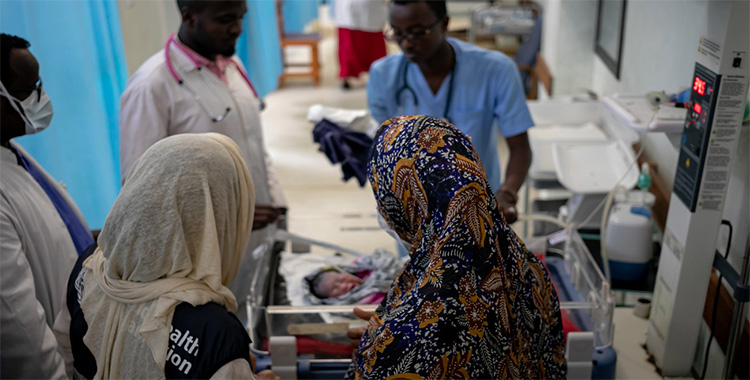
24 November 2024, Cairo, Egypt – Antimicrobial resistance (AMR) poses a major threat to public health, economic growth and development in the Eastern Mediterranean Region. Misuse and overuse of antibiotics is a key driver of AMR. At almost 25% higher than the global average, the World Health Organization (WHO) Eastern Mediterranean Region has the highest antibiotic consumption in the world.
Marking the last day of World AMR Awareness Week (WAAW) 2024, WHO is calling on governments, development partners, health care professionals and professional associations, industry and researchers, communities, youth groups and individuals to continuously “Educate. Advocate. Act Now” to combat AMR.
Educate
Raising awareness and expanding access to reliable information empowers people to understand the risks of AMR and the urgent need for prevention strategies. It is essential to educate the public on the responsible use of antibiotics. For health care workers, national stewardship guidelines and the WHO AWaRe (Access, Watch, Reserve) antibiotic book provide concise, evidence-based guidance on the choice of antibiotic, dose, route of administration and duration of treatment.
Advocate
Concerted advocacy is needed to push AMR to the forefront of public health policies and community initiatives and increase resources for research and innovation. Through multi-stakeholder partnerships, including governments, international organizations, professional associations, the private sector, industry, research alliances and community and youth groups, we can develop tailored and action-oriented programmes to tackle AMR.
Act Now
We cannot wait. WAAW serves as a crucial reminder that AMR is a shared responsibility. We urge individuals, health professionals, governments, partners and donors to adopt and champion responsible antimicrobial prescribing and use practices. Governments must act now to improve water, sanitation and hygiene (WASH) and infection prevention and control (IPC) practices, expand immunization, improve regulations and allocate funds. Professional associations urgently need to raise awareness through peer-to-peer education.
“Every government, every partner, every sector and every stakeholder needs to understand that AMR knows no boundaries and only collective action can protect people, health systems and economies,” said WHO Regional Director for the Eastern Mediterranean Dr Hanan Balkhy.
“This year, we saw remarkable commitments made by Member States at the UN General Assembly, our Regional Committee meeting and the Fourth Ministerial Conference on AMR. Now is the moment to turn these commitments into concrete country-level action.”
The latest available data forecasts that AMR could cause up to 39 million deaths globally by 2050 and lead to economic losses of up to US$ 3.4 trillion a year by 2030.
We can prevent at least 90 000 deaths annually by addressing AMR in the Eastern Mediterranean Region.
Note to editors
Antimicrobials, including antibiotics, antivirals, antifungals and antiparasitics are used to treat infections in humans, animals and plants. Antimicrobial resistance (AMR) occurs when bacteria, viruses, fungi and parasites change and no longer respond to medicines, making infections harder to treat and increasing the risk of disease spread, severe illness and death.
WHO has declared AMR one of the top 10 global public health threats facing humanity.
In September 2024, Member States endorsed a landmark political declaration at the 79th United Nations General Assembly (UNGA) High-Level Meeting on AMR, committing to a clear set of targets and actions, including that a minimum of 70% of antibiotics used in human health belong to the WHO access group of antibiotics which have a lower potential of developing resistance.
WHO Regional Office for the Eastern Mediterranean is committed to supporting Member States turn the political declaration into concrete country-level interventions.
For more information and resources on WAAW 2024 visit: https://www.emro.who.int/world-antimicrobial-awareness-week/2024/index.html
Political declaration on AMR: FINAL-Text-AMR-to-PGA.pdf (un.org)
Regional Committee resolution endorsing collaborative action to accelerate the response to AMR in the human health sector: https://applications.emro.who.int/docs/RC71-R4-D-AMR-eng.pdf
WHO AWaRe (Access, Watch, Reserve) antibiotic book: https://www.who.int/publications/i/item/9789240062382am
For Media inquiries:


